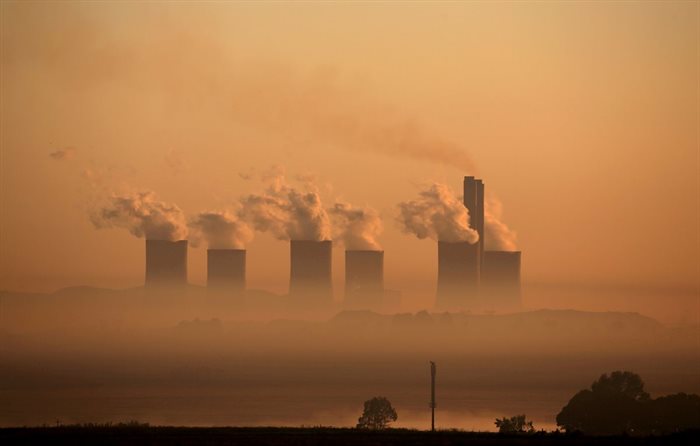UK climate envoy to visit SA to discuss helping shift from coal
Britain's envoy to the UN Climate Change Conference plans to visit South Africa ahead of the November talks, officials said, to discuss helping it end an over-reliance on coal that makes it one of the world's leading carbon emitters.

Steam rises at sunrise from the Lethabo Power Station, a coal-fired power station owned by state power utility Eskom near Sasolburg, South Africa, 2 March 2016. | Source: Reuters/Siphiwe Sibeko/File photo
South African environment ministry spokesperson Albi Modise said discussions involving British envoy John Murton would focus on cooperation in the transition from coal to renewables ahead of the COP26 in Glasgow.
A COP26 spokesman confirmed that senior UK government COP26 representatives and international partners would travel to South Africa in coming weeks.
Eskom plans to shut most coal-fired plants by 2050
Africa's most industrialised nation uses coal for more than 80% of its power. That has made it the world's 14th largest carbon dioxide emitter - pumping out 479 million tonnes equivalent in 2019 - two places above Britain, an economy eight times as big.
"The developed economies have a responsibility to fund the Just Transition to a low carbon economy," Modise said.
State power firm Eskom, Africa's single biggest emitter, is pitching a $10 billion plan to global lenders to shut most coal-fired plants by 2050 and embrace renewables. It is heavily indebted and struggles to keep the lights on, with frequent power blackouts.
Mandy Rambharos, who heads Eskom's Just Energy Transition office, said funding discussions were also taking place with US, French and German governments as well as the World Bank. She said Eskom hoped to announce a financing deal at COP26 but was still in discussions with government departments.
"We would like to have an irreversible agreement, ... the lenders committing to the funding and us committing to plans," Rambharos said.
Giving up coal as "economic suicide"
South Africa's government remains reluctant to give up coal altogether, which provides more than 90,000 jobs, according to the latest data from South Africa's Minerals Council. Energy minister Gwede Mantashe, the sector's most powerful backer, has described giving up coal as "economic suicide".
But President Cyril Ramaphosa is concerned that dragging its feet on the transition to renewables - South Africa is blessed with plentiful sun and wind - could leave it shut out of global capital markets needed to harness these resources.
In July, he warned South Africa faces risks from a rapidly decarbonising global economy, calling for international support to accelerate its transition.
Clyde Mallinson, a renewable energy consultant based in Johannesburg, said donors could get greater emissions reductions per dollar spent in South Africa than almost anywhere else - because labour costs are low and power is so carbon-intensive.
"For every kilowatt-hour of electricity you offset in South Africa, you get four or five times as much carbon reduction as you do in Europe," he said.
"That's a lot more bang for your buck."

